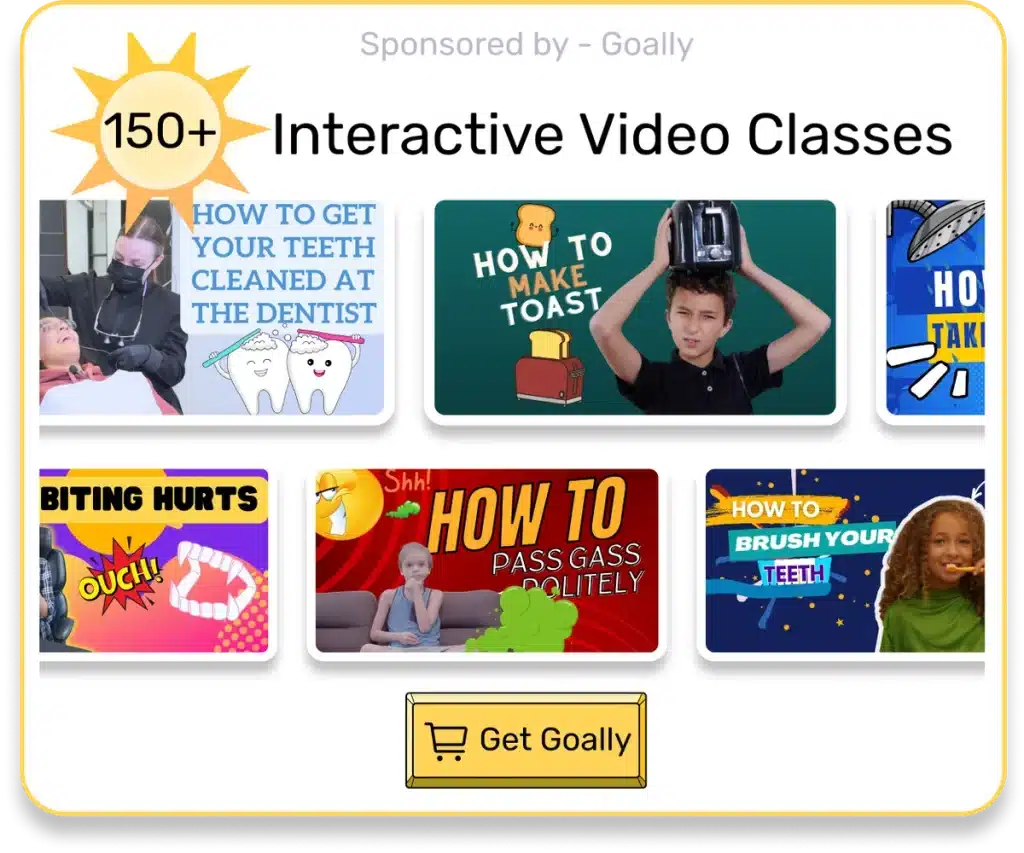Discovering that your child is hitting others can leave you feeling concerned and puzzled. You might wonder what’s causing this behavior and how to tackle it effectively. Hitting is common in children ages 2–3, and it can be a way to express frustration, get something, or get attention. Toddlers may hit because they don’t have the language skills to communicate their needs. In this blog post, we’ll explore possible reasons behind your child’s aggression and provide practical strategies to help you manage and prevent these incidents.
Table of Contents
Understanding the Reasons Behind Aggression
Before we explore solutions, it’s essential to understand the possible reasons why your child might be hitting others.
Some common factors include:
- Neurodiversity: Kids with unique needs, such as those with autism or ADHD, may have difficulty processing sensory input or regulating emotions, leading to aggressive behavior.
- Communication challenges: Neurodivergent kids and kids with thinking and learning differences may struggle to express their needs or emotions verbally, causing them to resort to physical means.
- Environmental factors: Stressful situations, lack of sleep, or overstimulation can contribute to aggressive outbursts.
- Modeling: Children may imitate aggressive behavior they’ve observed in others, such as siblings, peers, or even media.
Other causes of hitting include:
- Self-defense
- Stressful situations
- Lack of routine
- Extreme frustration or anger
- Inadequate speech development
- Over-stimulation
- Exhaustion
- Lack of adult supervision
By understanding the potential causes of aggression, you can better address the question, “Why is my child hitting others?” and develop a targeted plan to help your child learn healthier ways to express their emotions and needs.

Here are some tips for dealing with a child who hits:
- Stay calm: Avoid showing anger or disappointment.
- Use minimal words: Use a neutral tone and facial expression.
- Move away: If the child is angry or distressed, remove them from the situation.
- Redirect their behavior: Offer them a different activity or toy to focus on.
- Provide an outlet: If a child is having a tantrum, try providing them with something else to hit or kick, such as a pillow.
- Teach them to say “no”: Teach them to turn their back, or to compromise instead of fighting with their body.
Read more: ADHD Child Hitting Parents?
Strategies for Managing and Preventing Aggression
Now that we’ve identified some potential causes let’s explore actionable strategies to help you address your child’s aggressive behavior:
1. Foster Communication Skills
Encourage your child to express their feelings and needs verbally, using visual aids or alternative communication methods if necessary. Role-playing and social stories can also help teach appropriate ways to communicate in various situations. Goally offers a range of tools and resources to support your child’s communication development. This makes it easier for them to express themselves without resorting to aggression.
For example, you could use Goally’s visual schedule feature to help your child understand and anticipate daily routines, reducing anxiety and frustration that may lead to aggressive behavior.
2. Create a Calm and Predictable Environment
Establish routines and clear expectations to minimize stress and uncertainty. Provide a designated “calm-down” space where your child can retreat when feeling overwhelmed. This space should be free of distractions and filled with comforting items, such as soft blankets, calming music, or sensory toys.
Using Goally’s customizable reward system, you can also reinforce positive behavior and help your child understand the benefits of acting in a non-aggressive manner.

3. Teach Emotional Regulation Techniques
Introduce your child to deep breathing exercises, mindfulness practices, or other coping strategies to help them manage their emotions more effectively. Teaching these techniques early on can prevent aggressive outbursts and promote emotional well-being.
Consider incorporating these practices into your child’s daily routine, using Goally as a reminder and motivator to practice emotional regulation consistently.
4. Reinforce Positive Behavior
Use praise, rewards, or other incentives to acknowledge and reinforce appropriate behavior. This will help your child understand the benefits of acting in a non-aggressive manner. Be specific with your praise, highlighting the exact behavior you want to encourage.
Goally’s customizable reward system can be an excellent tool for reinforcing positive behavior. This allows you to set goals and track progress while offering tangible rewards for your child’s achievements.
5. Set Boundaries and Consequences
Establish clear rules regarding aggressive behavior and consistently enforce consequences if following the rules is not happening. This will help your child learn that hitting others is not an acceptable way to express their feelings or needs. Make sure the consequences are age-appropriate and consistent so your child understands the connection between their actions and the resulting consequences.

Read more: Why Does My Toddler Hit Me but Not Daddy?
Using Goally’s task management features, you can set expectations and track your child’s progress in adhering to these boundaries. This provides a visual reminder of the rules and consequences.
Understanding and Empathy: Key Components for Success
As you implement these strategies, remember that understanding and empathy are essential for success. Recognize that your child’s aggression may be a manifestation of their struggles and challenges rather than a deliberate act of defiance. By approaching the situation with compassion and a desire to help, you’ll be better equipped to support your child in developing healthier ways to cope and communicate.
Keep in mind that patience is crucial as you navigate this journey together. Celebrate small victories and progress, and remember that change takes time and consistent effort.
Seeking Professional Support
If your child’s aggressive behavior persists or worsens despite your efforts, consider seeking professional support. A therapist, psychologist, or behavioral specialist can provide additional guidance and resources tailored to your child’s unique needs.
Don’t hesitate to reach out for help when needed. Collaborating with professionals can offer valuable insights and strategies to better support your child’s emotional and behavioral development.

Goally | Best Videos to Teach Life Skills
Give your kid an independent future. Goally has 100+ video classes teaching life skills like “How to Choose a Restaurant,” “How to Interrupt Politely,” and “How to Get Ready for School.”
Goally takes kids on an adventure that includes interactive practice and checkpoints along the way! No web browsers, YouTube, or social media.
Final Thoughts
Understanding why your child is hitting others is the first step towards addressing the problem effectively. By considering the role of neurodiversity, communication challenges, and environmental factors, you can develop a targeted plan to help your child learn healthier ways to express their emotions and needs. Remember, patience and empathy are crucial as you navigate this journey together. With the right tools, such as Goally, you can make a positive impact on your child’s behavior and well-being.
FAQ’s About Why is My Child Hitting Others?
Why is my child hitting others? Hitting can be a way for children to express frustration, anger, or a lack of effective communication skills. Is hitting others a normal behavior in children? While hitting can be common in young children, it's important to address and teach alternative ways to manage emotions. What can I do to prevent my child from hitting others? Provide guidance on expressing feelings verbally, use positive reinforcement, and set clear boundaries to discourage hitting. When should I seek professional help for my child's hitting behavior? Seek professional guidance if hitting behavior is frequent, severe, or persists despite your efforts to address it.
This post was originally published on 05/15/2023. It was updated on 01/10/2024.

Goally
We help parents teach their kids life skills, like doing bedtime and morning independently. Backed by science, we incorporate evidence-based practices and expert-informed designs in all of our apps and content.





